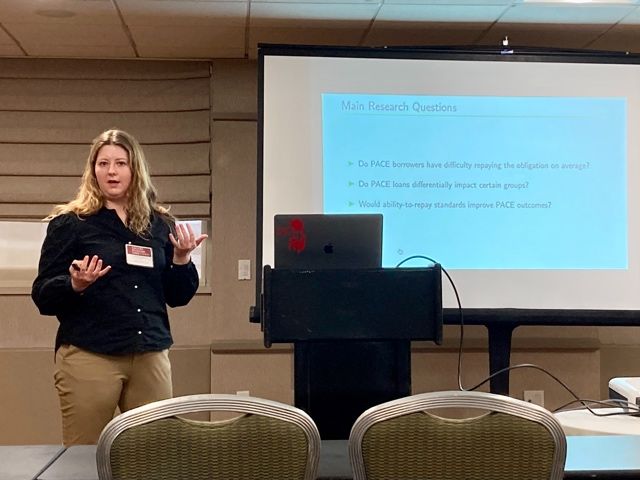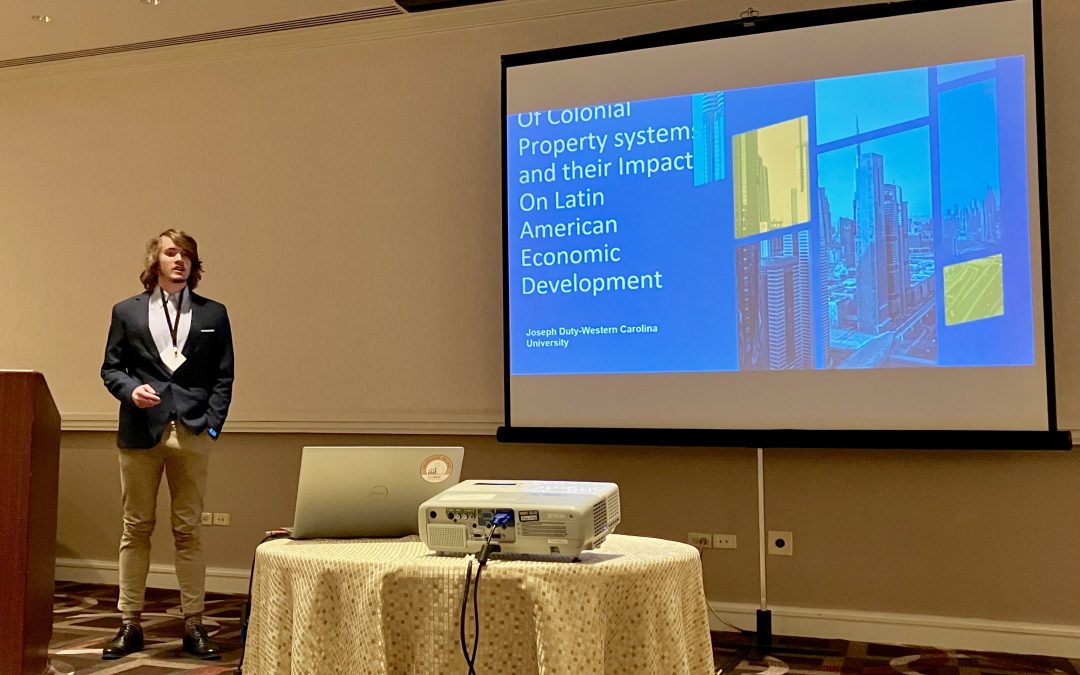
Joseph Duty Presents His Undergraduate Research Paper at the Eastern Economic Association Conference
On Friday, February 21, 2025, Joseph Duty presented his paper on the “Unintended Consequences: How the Different Implementations of Colonial Property Systems by the Spanish Effect Latin American Economic Development Today” at the Issues in Political Economy Undergraduate research sessions at the Eastern Economic Association Meetings in New York City. Joseph’s paper classifies former American Spanish territories into four categories based on their colonial property rights systems: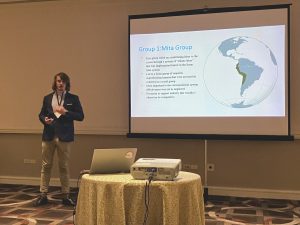
- The Mita Group: the Incan territory which saw the Spanish use a property system based on Incan traditions,
- Hacienda Group: the agrarian Hacienda system implemented by the Spanish in Central America,
- The Repartimiento Group: the initial territory of New Spain, now modern-day Mexico, where debt patronage was a common,
- The US States Group: the former Spanish territory that was seized by the United States in the Mexican American War.
He then investigates the relationship between these property rights regimes and current measures of economic development, human flourishing, and inequality. He finds that the historical property rights regimes under colonial rule still play a role in the current economic conditions of each of these regions. Joseph’s presentation was well received, and he gain valuable feedback from his discussant and many audience members.
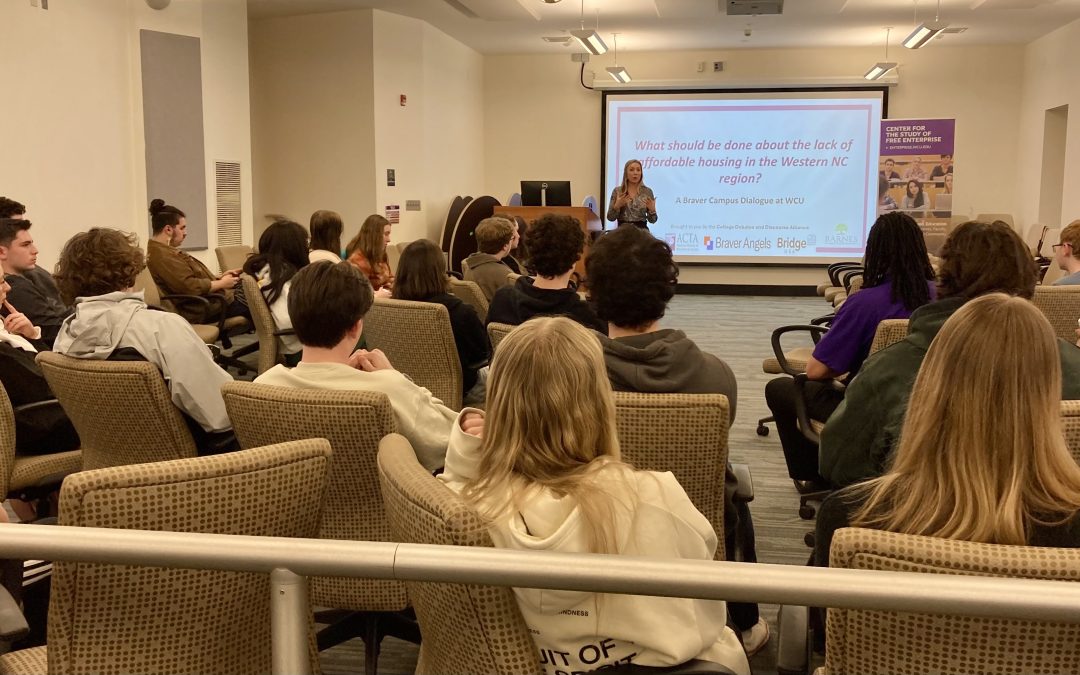
What should be done about the lack of affordable housing in the Western NC region?
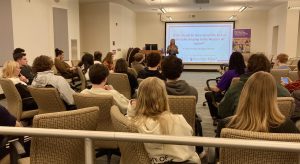 On Tuesday, February 11th, The CSFE welcomed back the College Debates and Discourse Alliance’s Kayla Johnson to serve as our discussion leader on the topic:
On Tuesday, February 11th, The CSFE welcomed back the College Debates and Discourse Alliance’s Kayla Johnson to serve as our discussion leader on the topic:
What should be done about the lack of affordable housing in the Western NC region?
This is the first ABCD format discussion cohosted by CSFE. This new discussion format asks students to share their ideas with one or two participants nearby before sharing their ideas with the entire group. As each idea is shared with the group, participants are encouraged to then ask questions about the ideas presented. The first line of questions focused on the housing challenges faced by residents of western North Carolina by asking:
What is the heart of the issue for you? 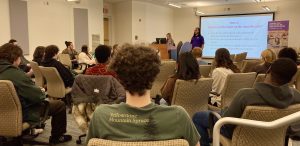
After sharing in small groups, participants shared their knowledge and experience with the entire group. The challenges are many. One challenge that students felt strongly about is the high price of rent in Cullowhee. High rent is particularly a challenge for full-time students who are no longer guaranteed on-campus housing after their second year at WCU. Many students are worried that the lack of affordable housing might require them to transfer from WCU after their first two years. Other participants noted the longer work commute people often face so that their rent is manageable.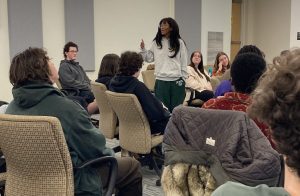
The second phase of the discussion asks: What should be done? Participants talked about ways to increase the number of houses through tax incentives and subsidies. Others brought up ways for the government to reduce building restrictions and bring higher paying jobs to the area. Each presenter fielded questions about their ideas and sought ways to persuade others about the way to move forward.
This enlightening event would not be made possible without the support of the Barnes Family Foundation and WCU’s own Melanie Lewis, Whitney McCall, and Brynne Murphy.
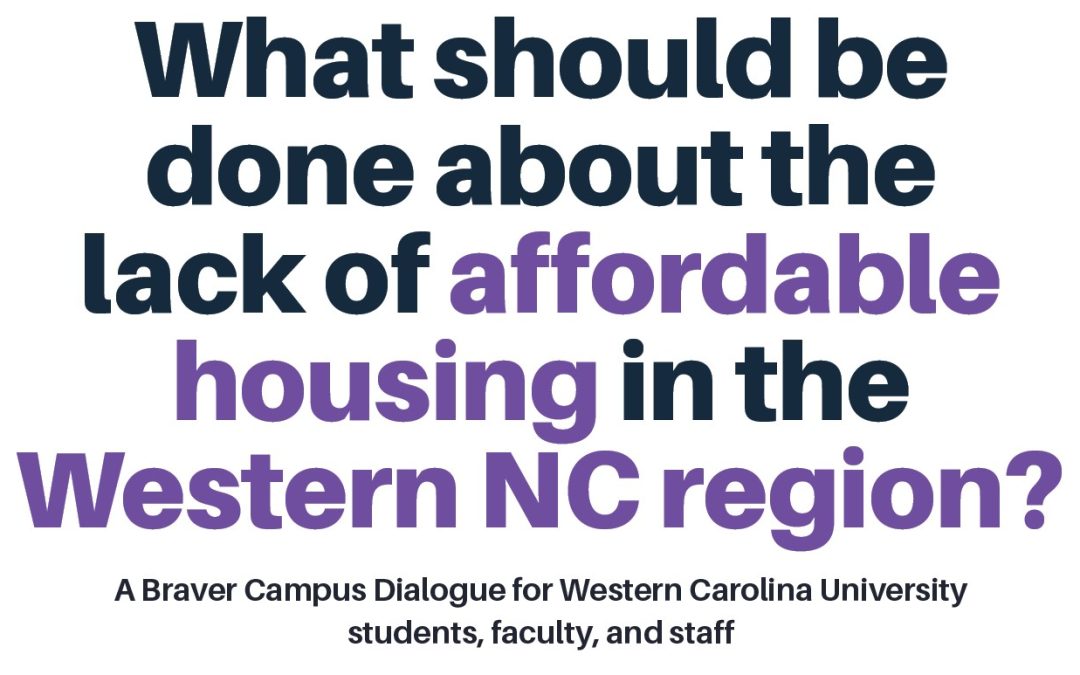
Campus Wide Discussion: What should be done about the lack of affordable housing in Western North Carolina?
Housing in Western North Carolina is expensive. Surprisingly expensive. Those from other parts of the country often assume that because Western North Carolina (WNC) is rural, housing is inexpensive. Residents know otherwise.
On February 11th the CSFE along with the College Debates and Discord Alliance will co-host a discussion: What should be done about the lack of affordable housing in Western North Carolina? Food will be served at 6pm and the discussion starts at 6:30pm. Registration is here: A Braver Campus Dialogue – Western Carolina University Tickets, Tue, Feb 11, 2025 at 6:00 PM | Eventbrite
So why might this be an important topic? The first figure below is the average price of a three-bedroom house in 13 cities in North Carolina. Six are from Western North Carolina; seven are from other areas of the state. The six from WNC are Asheville, Boone, Brevard, Bryson City, Sylva, and Waynesville. The seven other NC cities are Charlotte, Durham, Fayetteville, Greensboro, Raleigh, Wilmington, and Winston-Salem. Which are WNC cities? Which are not? 
What are your guesses? Do you think the top two are outside WNC? The top four?
As it turns out, the top four are ALL IN WNC: Boone, Brevard, Asheville, and Waynesville. The complete list is labeled in order of housing prices in the figure below.
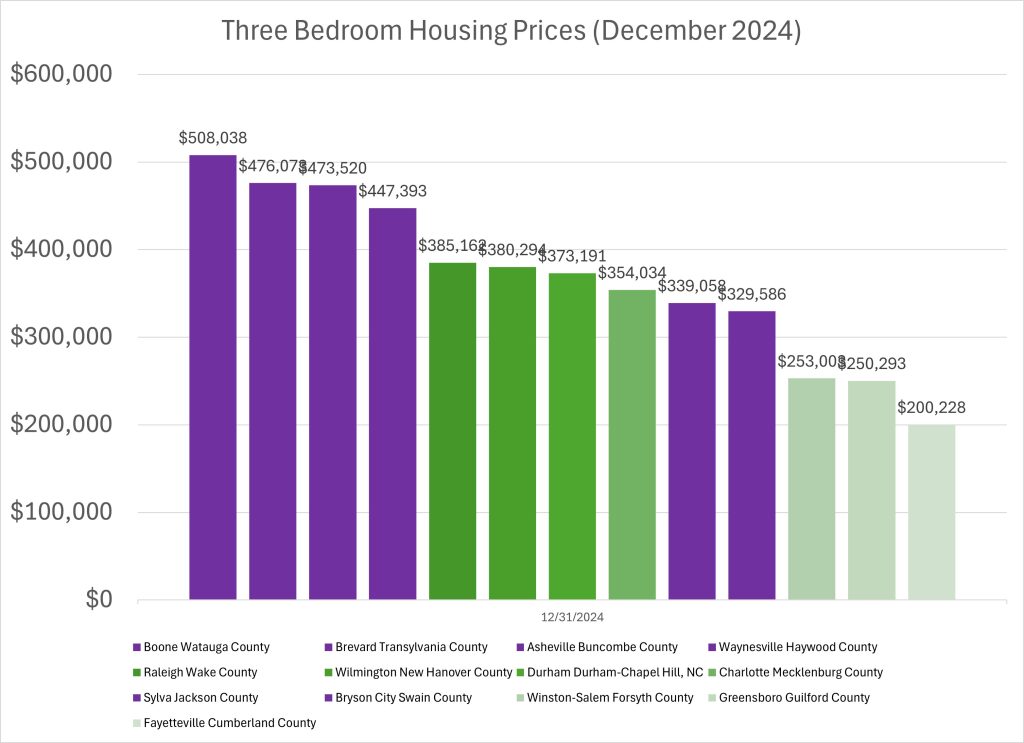

Graduate Spotlight: Diana Esters (WCU 2024)
We are always excited to highlight outstanding student-scholars who have played a vital role in Center’s projects and events. Diana Esters is a perfect example of such a student-scholar. In the fall of 2023, Diana was selected for the gift-funded, seminar class: Lunch over Liberty. The academic seminar hosted guest scholars who presented their ongoing research projects. Diana always offered excellent insights. Her questions often served as a focal point for ways the scholar could improve their working paper. In the spring of 2024, Diana was one of two WCU students to be named Lee Barnes Student Debate Fellows for the 2024 calendar year. As a fellow, Diana worked with me, another Western Carolina Student, and a College and Debates Discourse Alliance representative to hold two campus-wide debates in the spring and two in the fall. In the summer of 2024, Diana was intern at the American Institute of Economic Research (AIER) in Great Barrington, Massachusetts. Just before the final fall debate, I interviewed Diana to learn more about her experience at WCU and AIER.

Diana Esters (second from the right) at the American Council of Trustees and Alumni, Merrill Award Dinner, Reagan International Trade Center, Washington, DC, Oct. 24, 2024. Photos by: Zaid Hamid Photography. Copyright 2024. zaidhamid.com.
SM: Tell us a little about yourself.
DE: I am a senior at Western Carolina University studying Economics and Management. I am currently the lead Econ tutor with the Writing and Learning commons, as well as the Director of Communications for WCU’s Society for Human Resource Management chapter.
SM: What did you learn while interning at AIER?
SM: What was a typical day like at AIER?
DE: The workday mostly consisted of independent work and any discussion seminars or lunch talks being held that day. Often work would take the shape of collaborating with other interns, grad fellows, and AIER scholars to advance each other’s research projects, or just to discuss and explore topics of interest.
SM: You also attended a week-long seminar this summer. Tell us a little bit about the seminar.
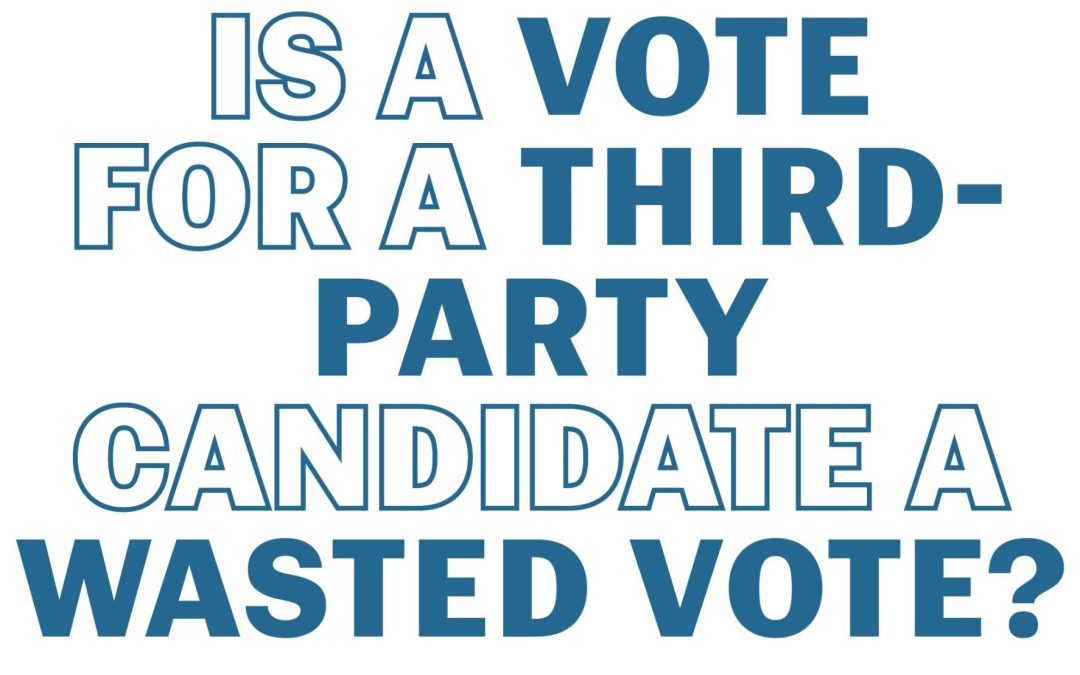
Is a vote for a third-party candidate a wasted vote?
Election Day is less than two weeks away. As of Oct. 4, 2024, polls showed that 46.5% had an unfavorable opinion of Kamala Harris and 52.6% felt unfavorably toward Donald Trump. So, what about voting for a Presidential candidate from a different party?
On Wednesday, October 30th, the CSFE is co-sponsoring a debate on the resolution:
“A vote for a third-party candidate is a wasted vote.”
To participate, please register here: WCU Braver Angels Debate 10/30.
The event will take place in Forsyth 101. Food and beverage will be available at 6pm and the debate will begin at 6:30pm
See you soon!
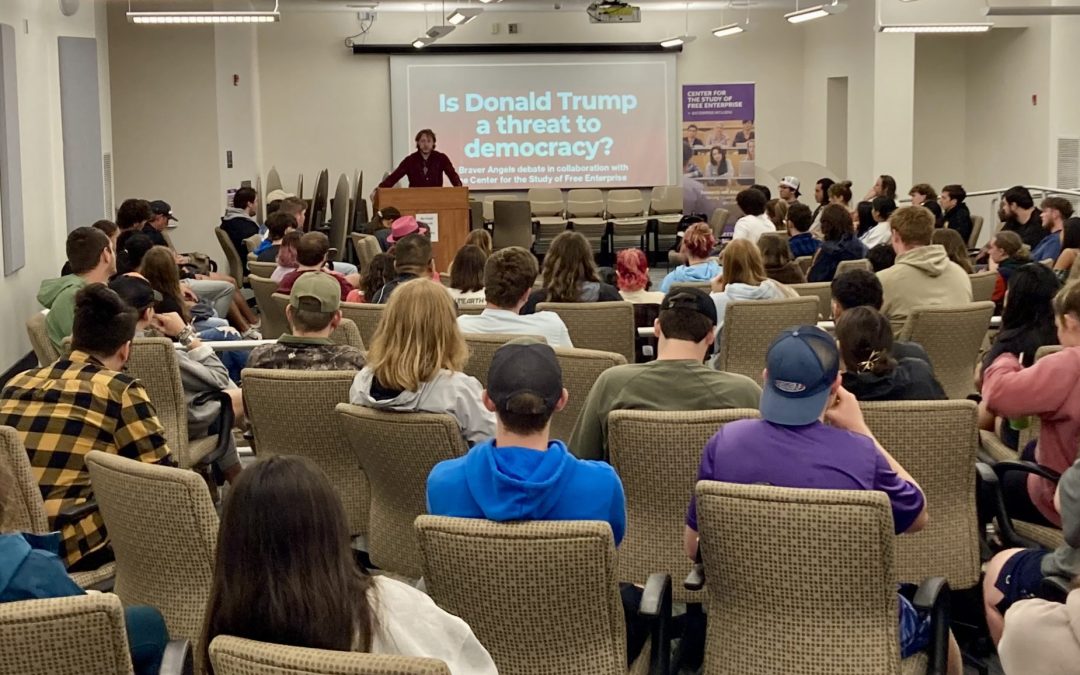
Campus-wide debate No. 1 on the 2024 Election was a success!
On September 25th, the Center for the Study of Free Enterprise, Braver Angels, and the College Debate and Discourse Alliance cohosted a debate on the resolution:
Is Donald Trump a threat to democracy?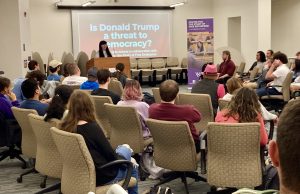
Over 95 students, faculty, and staff offered their views in support of and against the resolution. Speakers provided reasons for their opinions, and audience members asked questions to gain further insight into the speakers’ reasoning. Questions ranged from the robustness of our institutions to vote counting in Georgia, from Presidential power to January sixth, and from military authority to media bias. Many important avenues of thought were civilly and respectfully investigated and discussed. In the debrief, many students expressed how thankful they were that all speakers had a platform to offer their genuine thoughts and that those in attendance listened intently. One participant noted that there are so few welcoming spaces that allow for courteous, and yet probing questions on polarizing topics. 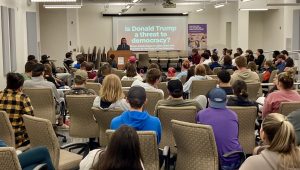
The debate would not have been possible without Braver Angel Fellows Kevin Lavery and Diana Esters. Kevin was an outstanding chair who ensured speakers and audience members had ample time to voice their opinions and ask questions in a seamless manner. Diana Esters served as the whip by encouraging audience members to present their thoughts and ideas to the entire group by speaking from the podium.
The debate was may possible by the generous support of the Barnes Family Foundation.
The second debate will take place on October 30th at 6pm in Forsyth 101. The resolution will be: “A vote for a third-party candidate is a wasted vote.” Registration for the October 30th debate is here: WCU Braver Angels Debate 10/30.
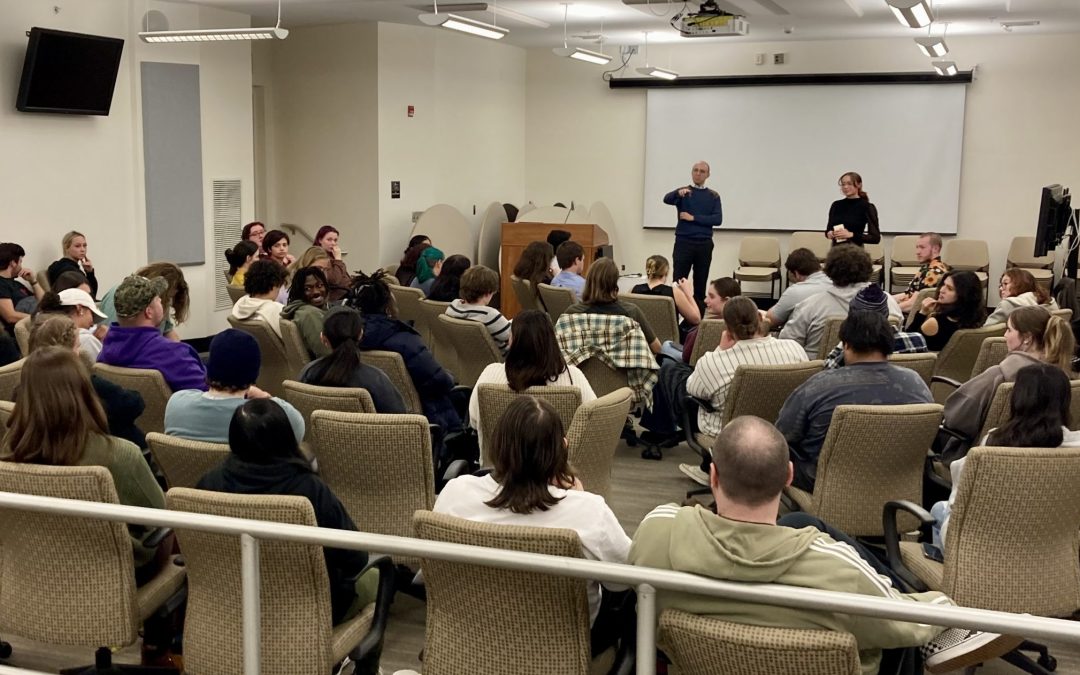
Hosting two campus wide-debates this fall: September 25th & October 30th
This fall the CSFE will continue to co-sponsor events that offer students the opportunity to listen, learn, and discuss potentially polarizing topics through two campus-wide debates. Because 2024 is an election year, we polled students about eight possible resolutions pertaining to the election. Therefore, the debates will share a common theme of voting and democracy.
On September 25th at 6pm in Forsyth 101, the College Debates and Discourse Alliance and The Center for the Study of Free Enterprise at Western Carolina University will cohost a debate: “Donald Trump poses a threat to democracy.” Registration for the September 25th debate is here: WCU Braver Angels Debate 9/25.
On October 30th at 6pm in Forsyth 101 participants will debate: “A vote for a third-party candidate is a wasted vote.” Registration for the October 30th debate is here: WCU Braver Angels Debate 10/30.
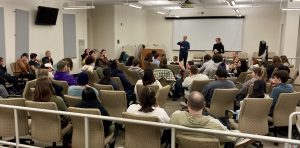
Both debates will kick-off with two speakers presenting their arguments in favor of the resolution and two speakers presenting their arguments against the resolution. The chair of the debate will encourage the audience to question the speakers’ ideas and provide a platform for attendees to offer their own perspectives on the resolution.
The debates will be facilitated by Braver Angels fellows Diana Esters (’25) and Kevin Lavery (’25). At each debate, one will oversee the parliamentary format and ensure civility in disagreement as the chair of the proceedings. The other will facilitate the debate by encouraging audience members to present their thoughts and ideas to the entire group by speaking from the podium.
Food and drink will be served beginning at 6:00pm followed by the debate at 6:30pm.
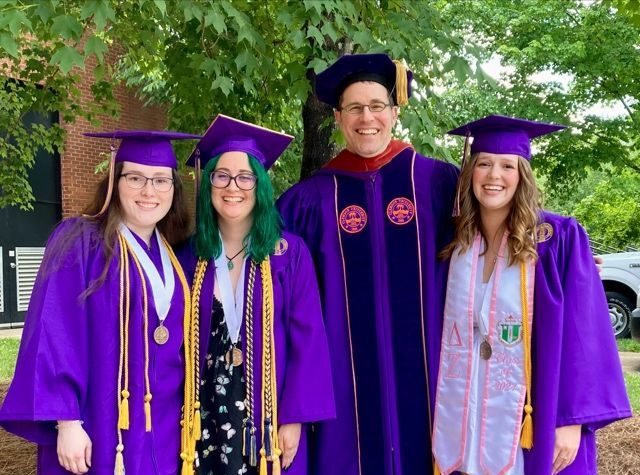
First Economic Analysis Degree Graduates from Western Carolina University
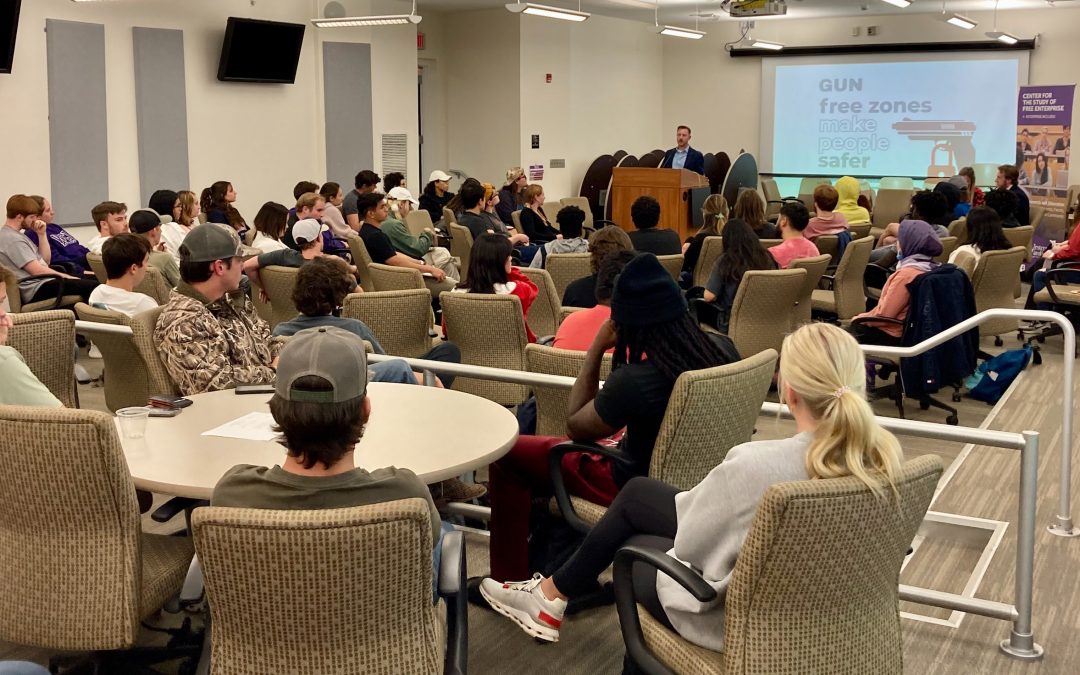
Campus-Wide Debate: Gun free zones make people safer
Learning how to fully listen to others and respectively debate ideas is crucial to growth and learning. On April 22nd, Braver Angels and The Center for the Study of Free Enterprise at Western Carolina University, with support from the Barnes Family Foundation, cohosted a debate:
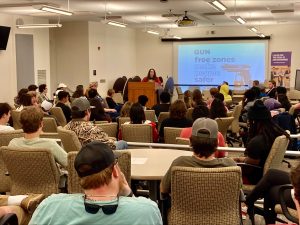 Gun free zones make people safer.
Gun free zones make people safer.
Over 70 students and community members participated in the discussion. The evening was full of thoughtful speakers for and against the motion. Braver Angel fellows Diana Esters (’25) and Kevin Lavery (’25) facilitated the debate by serving as whips to encourage audience members to present their thoughts and ideas to the audience by speaking from the podium. Numerous speakers provided insights to why they were for or against the idea of gun free zones.
The successful event would not have been possible without Kayla Johnston, Matt Kircher, Braver Angel fellows Diana Esters and Kevin Lavery, Melanie Lewis, Whitney Mcall, Brynne Elizabeth Murphy, and Teresa Starrs.
